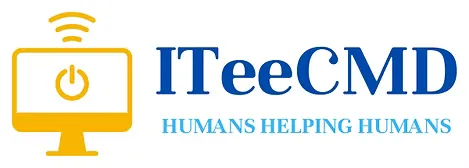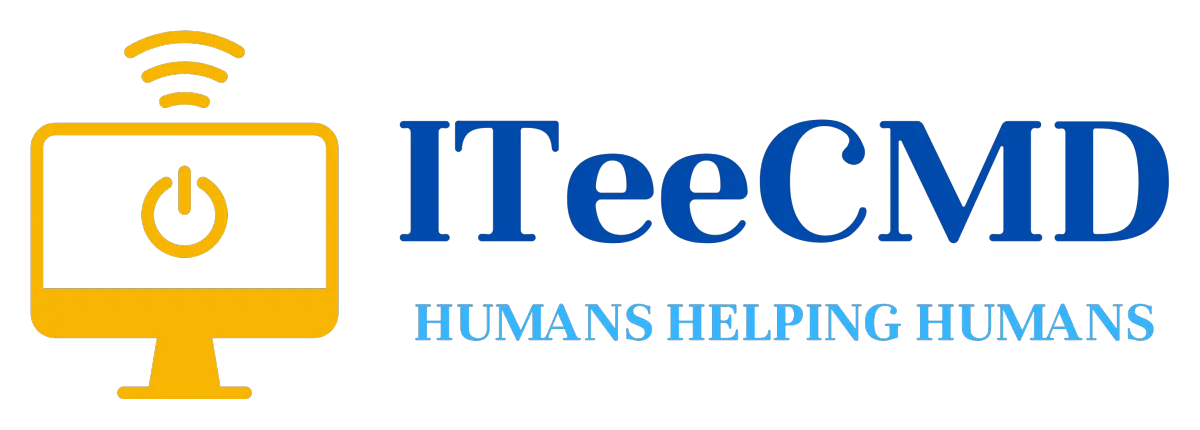Our Latest Blog Posts!

Escaping Societal Boxes
Unboxing the Matrix: Escaping Societal Boxes and Exploring Our Minds
Many of us have felt limited by expectations from society, our work, or even our own thoughts. These pressures can make us forget what we truly enjoy and who we really are. It often feels safer to stay inside our comfort zones, but doing so can also hold us back from growing.
Exploring new ideas and staying creative are important for both personal and professional life. When we question what holds us back and start using new tools, like technology and AI, we open up more choices for ourselves. It’s in this space that we can start to heal, discover our purpose, and truly flourish.
Key Takeaways
Questioning limits helps us rediscover our creativity.
Using new tools can support personal growth and healing.
Overcoming barriers allows us to live with more freedom and purpose.
Recognizing the Limits Society Places on Us
The Effects of Social Expectations on How We Think
We notice how society often pushes us to fit in, which can cause us to forget who we are. Many of us end up going through the motions, not really being ourselves, because social expectations weigh us down.
Loss of self-worth: Over time, pressure may make us question our abilities.
Robotic routines: We follow rules and roles, sometimes without thinking about why.
Struggle with identity: When asked who we are, it can be hard to answer.
Social Pressure Personal Impact Fit in Less creativity Success norms Forgetting true goals Appear “normal” Hiding real feelings
How Jobs and Social Status Shape Our Opportunities
Not everyone has the same chance to take time for personal growth. Jobs, class, and even where we were born can make it easier or harder to think outside the box.
Key Points:
Many people are too busy trying to pay the bills or find their next meal.
Those in harder jobs or lower classes often can’t afford the luxury of “thinking big.”
Some of us may have more freedom to switch paths, but for many, a single job or field is chosen for life.
Survival mode keeps us focused on food and shelter, not dreaming or growing.
Systems in Society That Keep Us in Place
There are systems built to keep change slow and maintain the way things are. Big institutions tend to be very careful and even fight new ideas.
In science or medicine, it can take decades for new research to become accepted.
People who challenge the system often face resistance and even efforts to silence or discredit them.
Just like in nature, where most changes don't last, society can be quick to push “different” out to protect the usual ways.
Summary Table:
Structure How It Boxes Us In Schools Teach us to follow, not question Workplaces Want sameness and routine Social systems Resist anything too different
Staying aware of these forces helps us see the invisible limits we face, questioning if we’re making our own choices or just following the script.
Unleashing Original Thinking and Discovery
Finding Fresh Ideas in Everyday Routines
We often forget how to be creative in our daily lives. Many of us follow routines, focus on our jobs, or stick to what others expect. By stepping out of this "box," we can tap into creative ideas, even in simple tasks at home or work.
Try new hobbies
Ask different questions
Change how we look at problems
This helps us discover fresh solutions and feel more engaged with what we do.
Keeping an Open Mind and Staying Curious
Openness and curiosity can make a big difference in how we see the world. When we were younger, exploring came naturally. As adults, social pressures sometimes cause us to lose that spark. It feels easy to get caught up in survival mode—thinking about what's next instead of what could be.
We can try these steps:
Habit Result Listening to new ideas Learn from others Taking time to reflect Discover our true selves Questioning assumptions Grow beyond our limits
This mindset lets us see past limits and find new paths.
Mixing Skills from Different Fields
Working across different fields gives us an advantage. Some of us study science, work in sales, or try new roles over time. Each skill or job brings a unique view. For example, blending data science with health care or technology with business can lead to creative solutions.
Key benefits include:
Solving problems with different tools
Avoiding narrow ways of thinking
Finding connections that others miss
Learning from many fields feeds our curiosity and shapes better answers for tough challenges.
Breaking Free From Mental and Social Constraints
Breaking Down Barriers in Our Minds
Many times, we believe we have to follow certain rules or paths set by society, our jobs, or even our families. These beliefs become limits inside our heads. The pressure to fit into a specific role or career can make us forget our true interests and talents.
We might feel that we need to pick one thing and stick with it for the rest of our lives. This way of thinking can keep us from exploring new areas that excite us. Remembering that it's okay to enjoy different things helps us grow as people.
Steps Toward Positive Change
Here are some ways we can start to create real change in our lives:
Try New Things: We should not be afraid to learn new skills or go after different jobs.
Question the Rules: Sometimes the rules we're following are only in our minds. We can ask ourselves if a rule really makes sense.
Use Creativity: Even in everyday tasks, being creative can help us see problems in new ways.
Make Time for Ourselves: Taking a few minutes to think can give us new ideas about what we want in life.
Action How It Helps Try New Experiences Helps us discover new skills Question Old Rules Breaks us out of old habits Be Creative Opens us to fresh solutions Reflect Often Guides our personal growth
Why Looking Inward Matters
Self-reflection is important. We often get so busy with daily life that we forget to think about what we really want. Many people spend their time only trying to survive, not thinking about their hopes or dreams.
When we reflect, we can ask ourselves important questions:
What do I enjoy doing?
Am I living the way I want to live?
What would I try if I wasn't afraid of failing?
These questions help us notice if we're living by choice or by habit. Taking the time to reflect gives us the power to make changes that fit who we really are.
How Technology and Artificial Intelligence Shape Our Personal Growth
Using Data and AI for Personal Progress
We use data science and AI to solve tough problems that impact our lives. Data analytics helps us see patterns and make better choices. By working in fields like cybersecurity and healthcare, we find ways for technology to help us change for the better.
Here is how we use data and AI:
Analyze large amounts of information to find useful insights
Build tools that spot risks and improve safety
Discover new ways to help people stay healthy
Area How We Benefit Cybersecurity Spot threats early Healthcare Improve patient care
Creativity Where Technology and People Meet
We need to remember how important it is to stay creative. Technology should help us express ourselves, not put us in a box. When we mix human creativity with new tools, we open doors we never thought possible.
Creativity is not just for art, but for problem-solving in all parts of life. We should not be afraid to learn new things or think in new ways. Exploring different ideas lets us become our true selves.
New Paths in Health and Keeping Data Safe
There are big changes coming in medicine and keeping information safe. We work on healthcare technology that can make treatments faster and better. In cybersecurity, our goal is to protect data and prevent attacks before they happen.
Technological progress in these areas offers:
Better care for patients
Quicker response to health problems
Stronger systems to guard our data
Technology and AI give us tools to grow and evolve in ways that fit who we are and who we want to be.
Healing, Purpose, and Flourishing
Discovering What Really Drives Us
Sometimes we get caught up in society’s rules or what others expect from us. We might focus too much on our job title or our degree and forget what we truly enjoy. When we step back and let ourselves be curious and creative, we find our real interests and passions. It’s okay to like different things and explore new fields. That’s how we figure out what actually matters to us.
Be open to new ideas and interests
Remember that titles do not define us
Explore both our minds and new skills
Ways to Find Purpose Why It Matters Ask what excites us Keeps us motivated Try different activities Helps us learn about ourselves Learn outside our field Builds confidence
Why Taking Time To Heal and Accept Ourselves Matters
Many of us feel pressure to fit into society’s boxes. Over time, this can make us forget who we are and what we’re good at. We can even feel lost or unsure of ourselves. It helps to give ourselves time to reflect and accept our own strengths and weaknesses.
Sometimes, having space to think is a real luxury. Not everyone gets to pause and consider what they want. When we do, it can help us heal from the habits and thoughts that hold us back.
Key Tips:
Take time for self-reflection
Accept that it is normal to change direction
Know our worth, even if others do not see it
Moving Beyond Just Making It: Growing and Thriving
There is a big difference between surviving and really living. When we are focused only on getting by or meeting our basic needs, it’s hard to plan for the future or dream big. We get stuck in a survival mode that keeps us from exploring new goals.
If we have enough safety and stability, we can shift our focus. We start to think about personal growth, new adventures, and finding what makes us flourish. This is how we move from just existing to actually enjoying life and growing as people.
Surviving:
Focusing only on basics
Worrying about daily needs
Little time for dreams
Flourishing:
Exploring our interests
Growing in different areas
Looking for meaning and purpose
Pushing Back Against Powerful Systems
Pushback in Schools and Business
We see that many universities and big companies struggle with accepting big changes. It is common for both students and workers to be told to stay in their lane and not stand out. Most people end up following set rules and tradition, even if they have creative ideas.
Here are some common barriers:
Strict rules for how things are taught or done
Peer pressure to avoid new ideas
Focus on titles and official roles over real talent
This pressure can leave us feeling boxed in and can stop important changes from happening.
How Ideas Struggle or Survive
Change does not always come easy because most systems prefer to keep things the same. Innovation often gets slowed down by the desire to hold onto what is already working. For example, in science and medicine, mistakes are rare for a reason: the system is designed to be careful, not risky.
Conservatism shows up in other ways:
Only small changes are allowed
People who think in new ways are pushed aside
Systems may resist anything that looks too different
System Focus Effect on Change Academia Tradition & Approval Slow adjustments Industry Protocols & Risk Reluctance to test Medicine Proven Methods Delayed improvements
Lessons From Real Life: Jordan Peterson and Medical Shifts
Consider the case of Jordan Peterson. He offered new ways of thinking, but the system responded by trying to discredit him. This is common when someone challenges widely accepted ideas.
We find the same issue in the medical field. If a new study suggests a better way, it might take decades before it becomes part of daily practice. Books must be rewritten, people need to be retrained, and the system itself often pushes back against any shift.
Real change requires persistence, new evidence, and sometimes, a willingness to step outside the box.
Key Takeaways
We have seen how easy it is for us to limit ourselves, often without even realizing it. Social pressures, expectations, and busy lives can make us forget our creativity and what makes us unique.
Taking time to reflect is not always possible for everyone, especially when basic needs come first. This affects how much we can focus on growing and exploring new ideas.
Here are some points to remember:
Challenge Impact Social expectations Makes us question our worth and path Lack of free time Keeps us in survival mode System resistance Discourages new or “different” thinking
When we dare to break out of the “box,” we open the door to learning, creativity, and growth. Our different paths, fields, and interests give us fresh ways to solve problems—even complex ones. It is important that we remind ourselves, and each other, that curiosity and openness are real strengths, not weaknesses.
Address
2618 San Miguel Drive
Newport Beach, CA, 92660
Tel: 949-257-6998
Address
Newport Beach, CA, 92660
Tel: 949.257.6998
Follow Us
© 2025 all rights reserved. Created by Growth Generators. Privacy | SMS Disclosure.

